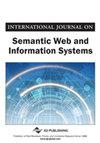一种检测社交媒体假新闻的机器学习技术
IF 5.6
4区 计算机科学
Q2 COMPUTER SCIENCE, ARTIFICIAL INTELLIGENCE
International Journal on Semantic Web and Information Systems
Pub Date : 2023-07-20
DOI:10.4018/ijswis.326120
引用次数: 1
摘要
互联网的出现和在线平台(如Facebook和Instagram)的不断发展,为人类历史上前所未有的信息传播开辟了道路。随着社交媒体网站的使用率越来越高,消费者产生和分享的信息和海量数据比以往任何时候都多,而其中许多网站都具有欺骗性,与现实毫无关联。一项艰巨的任务是将文本文章自动分类为误导性或错误信息。为了看到最新的新闻提醒,人们经常使用电子报纸、Twitter、Instagram、Youtube等等。社交媒体上的假新闻会导致个人和精神疾病的不确定性。我们可以检测到基于机器学习技术获得的新闻是真的还是假的。本研究提出了一种机器学习技术,通过对社交媒体数据进行过滤,使用机器学习算法对预处理数据进行分类,评估开发的系统,并评估结果来检测假新闻。本文章由计算机程序翻译,如有差异,请以英文原文为准。
A Machine Learning Technique for Detection of Social Media Fake News
The emergence of the Internet and the growing development of online platforms (like Facebook and Instagram) opened the way for disseminating information that hasn't been experienced in the history of mankind earlier. Consumers generate and share more information and a massive amount of data than ever with the growing utilization of social media sites, many of which are deceptive with little relevance to reality. A daunting task is the automated classification of a text article as misleading or misinformation. To see the latest news alerts, individuals often utilize e-newspapers, Twitter, Instagram, Youtube, and many more. Fake news created on social media can lead to uncertainty amongst individuals and psychiatric illness. We may detect that news obtained based on machine learning techniques is either true or false. This study proposes a machine learning technique to detect fake news by carrying out filtration on social media data, classifying the preprocessed data using a machine learning algorithm, evaluating the developed system, and evaluating the results.
求助全文
通过发布文献求助,成功后即可免费获取论文全文。
去求助
来源期刊
CiteScore
6.20
自引率
12.50%
发文量
51
审稿时长
20 months
期刊介绍:
The International Journal on Semantic Web and Information Systems (IJSWIS) promotes a knowledge transfer channel where academics, practitioners, and researchers can discuss, analyze, criticize, synthesize, communicate, elaborate, and simplify the more-than-promising technology of the semantic Web in the context of information systems. The journal aims to establish value-adding knowledge transfer and personal development channels in three distinctive areas: academia, industry, and government.

 求助内容:
求助内容: 应助结果提醒方式:
应助结果提醒方式:


